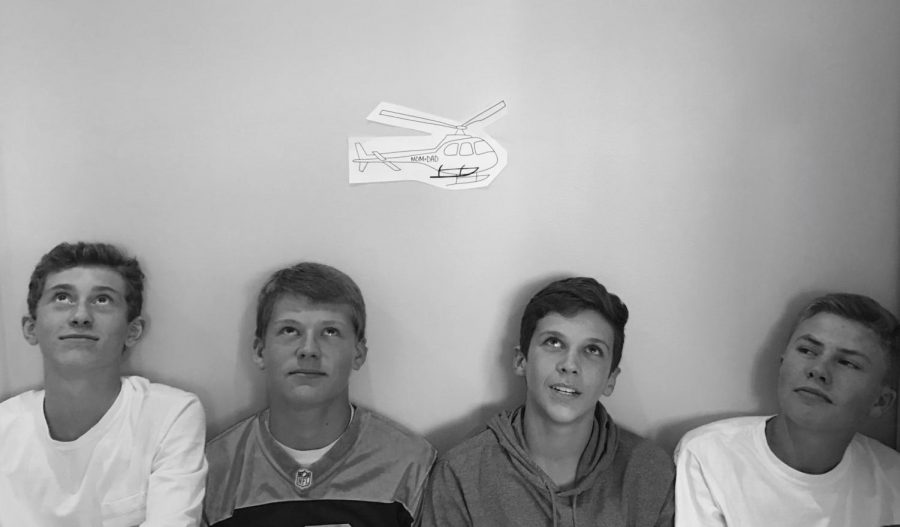With the development of the college admissions scandal, the nature of helicopter parenting is coming to the forefront. Celebrities like Felicity Huffman and Lori Loughlin claim they lied and paid for their children to get ahead for their benefit, when in reality it is destroying their work ethic and ruins chances for them.
Huffman was recently sentenced to two weeks in ‘jail’, a facility where she is allowed to sunbathe and watch TV until midnight. Huffman and over 30 other celebrity parents are accused of spending tens of thousands of dollars to fabricate standardized test scores or resume builders for their children’s’ college applications.
This practice of lying and cheating to get children ahead may be well-intended at heart, but in reality is cruel. Licensed psychologist, Dr. Dunnewold believes that this type of parenting is detrimental to teenagers. “It means being involved in a child’s life in a way that is over controlling, overprotecting, and over perfecting, in a way that is in excess of responsible parenting,” he said.
This extreme parental control in teenager’s lives teaches them that their identity is based upon a test grade and their high school transcript. Not only does it tarnish their self-esteem by telling them their best is not good enough, it teaches teens that hard work doesn’t pay off, only cheating does.
As children get older and begin to reach high school age, their responsibilities and range of independence should increase. While keeping kids on top of their grades, setting curfews and checking up on them are healthy parenting practices, some are taking it too far.
Apps like Life360 are commonly used by parents to track their teens’ locations while hanging out with friends. The parents of senior Lauren Buechel use the app very frequently to check up on Lauren even when she doesn’t answer their text messages or phone calls. “My parents use Life360 everyday to check my location and have very strict rules for my curfew. If I come home late or am at a location they don’t want me to be, I’ll get in trouble when I get home,” she said.
Many students can relate to a similar struggle as Buechel and wish they had more independence. While it is mainly used for parents to ensure their child’s safety, it can also be an invasion of their privacy and another example of too much parental control. When kids feel their parents have gone too far, it can put a strain on their relationship and cause a backfiring effect to the initial purpose of the Life360 app.
Another senior, Claire Bebow, has a very different relationship with her parents, who are very lenient with her curfew and rules about hanging out with friends. She believes their relationship is very strong and that comes from the trust they have between each other. “I think that helicopter parenting can make kids more sneaky and separate them from their parents. Being too strict is usually ineffective and causes kids to go the opposite way,” she said.
In a world where teens feel stress from every angle, the thought that their parents do not trust them or believe in their abilities can be another reason to bog them down. Rather than helping their children, helicopter parents end up hurting their self-esteem, the relationship they have with them and their trust.
Instead of nit-picking every detail about their child’s life, parents should try to focus on making the best of their time with their teenagers because they don’t have many years left at home to enjoy.









